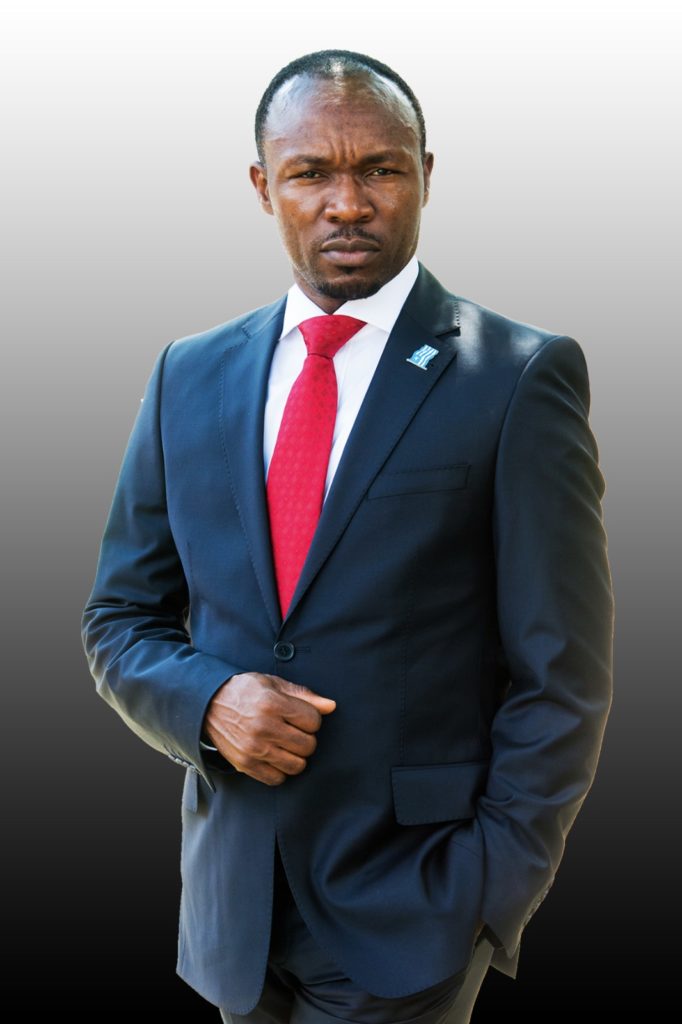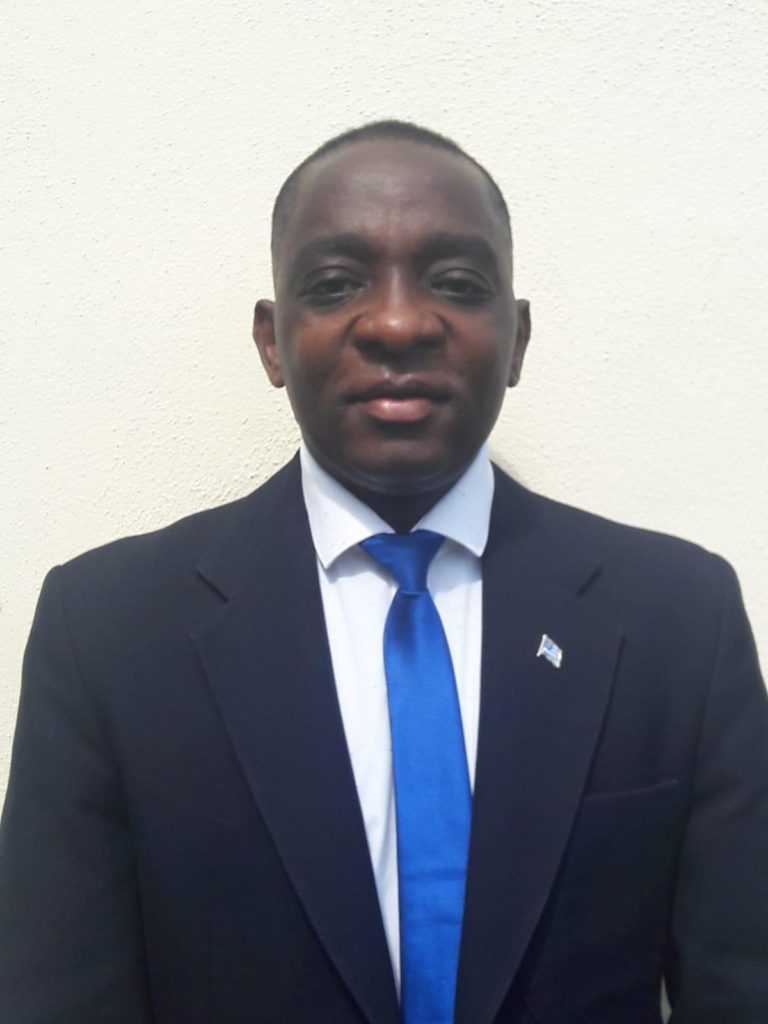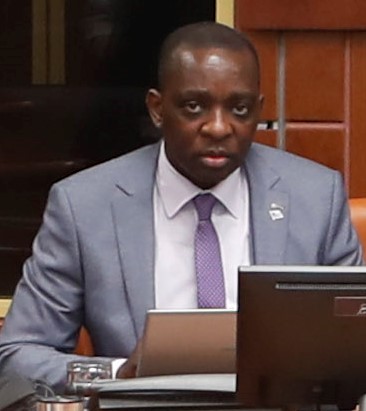The government of Cameroun is not known to be shy in inching forward with her policy of home-grown solution to the Ambazonia crisis that is claiming thousands of lives, wiping out villages and suffocating the economy. Even with international pressure, Mr. Paul Biya’s government is clearly reluctant to embrace straight forward engagement with the persons or groups that seem to hold the key to resolving the crisis.
Not even the Swiss intervention and offer to broker talks between what the UN now calls both parties in the conflict has attracted clear cut reaction of the Cameroon government.
Now one of the contending game changers, the Ambazonia Governing Council has issued a comprehensive writeup on the route to resolving the Ambazonia-Cameroon conflict or as many now refer to it, the Ambazonia War of Independence.

Following is a complete text of the document that should possibly shine light on the arguments of the Ambazonia that that has the ears of the international community. It is signed by the AGovC Vice President, Dr. Julius Nyih and title:
POSITION OF THE AMBAZONIA GOVERNING COUNCIL ON THE PERMANENT RESOLUTION OF THE AMBAZONIA-CAMEROON CONFLICT

Whereas the Ambazonia territory is the territory that was originally under British rule from 1858 to 1887, then ceded to Germany and subsequently incorporated into the contiguous German protectorate of Kameron;
Recognizing that Ambazonia is the erstwhile United Nations Class B Mandate Trust Territory of the Southern Cameroons placed under British administration in and from 1916, and which independence was set by the United Nations for October 1,1961; Mindful that in the botched decolonization process of Ambazonia, there has never been a declared agreed upon terms and policies, otherwise known as a union treaty as was required by UN Resolution 1608 (XV), Operative Paragraph 5 of 21stApril 1961uniting the territory of Ambazonia and the territory of the Republic of Cameroon; Cognizant that following the failure of the Government of Southern Cameroons (Ambazonia) and the Government of the Republic of Cameroon to reach a union treaty agreement at the Foumban Talks of July 17-21, 1961andat the Yaoundé Tripartite Conference of August 2-7,1961, the Republic of Cameroon marched in its troop and occupied Ambazonia on September 27, 1961without a union treaty ratified by the Southern Cameroons (Ambazonia)House of Assembly and House of Chiefs as it were; Recalling that in the absence of a union treaty, the Cameroon government in 1961 self-adopted a dictum of annexation that it dubbed a “Federal Constitution of September 1, 1961” in the absence of the Ambazonian people and without ratification by the Southern Cameroons (Ambazonia) House of Assembly as it were, imposed it on the people of Ambazonia, and has since then modified and enacted other similar instruments at will in a string of political gimmicks and abuses to complete its occupation, tyrannical rule, and annihilation of the Ambazonian people; Reaffirming that “No valid constitutional or other legal basis has ever existed between the two Cameroons and for the common governance of the two territories” (All Anglophone Congress, Buea Declaration, 1993).
Taking into consideration, therefore, that any claim of Cameroon over Ambazonia Territory constitutes annexation and illegal occupation of the Ambazonia territory without the consent of the Ambazonian people in accordance with international law, principles and procedures.
Pursuant to the will and determination of the Ambazonian people to free themselves once
and for all from more than half a century of annexation, illegal occupation, alien subjugation, impunity, tyranny, systematic domination, dehumanization and deprivation of health and human rights, dismantling of the economic development institutions and possibilities of the Ambazonian people, looting of Ambazonian territorial resources, continuous torture, enforced disappearances and killing of thousands of Ambazonians, rape of Ambazonian women, destruction of hundreds of Ambazonian towns and villages, etc. by the Cameroon government; and Conscious of the mission and operative framework of the Ambazonia Recognition Collaborative Council (ARCC) by which constituent Ambazonian movements commit themselves to the independence, sovereignty and international recognition of the statehood of Ambazonia;
The following is the irreversible position of the Ambazonia Governing Council on the Ambazonia liberation struggle in view of achieving both a permanent resolution of the ongoing armed conflict between Cameroon and Ambazonia and a sustainable peace:
- We affirm with the African Union that “oppressed peoples shall have the right to free themselves from the bonds of domination by resorting to any means recognized by the international community” (African Charter of Human and Peoples Rights, Article20, no.2).
2. We assert that Ambazonians constitute “a people” under international law, and have been so determined by the African Commission on Human and Peoples Rights (2009). As a people, they have the right to self-determination by virtue of which they freely determine their political, economic, legal, educational, social and cultural development as provided in Article 1 of the Charter of the United Nations (1945), Article 1 of the International Covenant on Economic, Social and Political Rights, Article 1, no.1 of the International Covenant on Civil and Political Rights (1966), and Article 20 of the African Charter of Human and Peoples Rights (1981). It is inappropriate, illegal and an absolute violation of international law and principles, and the rights of the Ambazonian people for the Cameroon government to impose its rule politically and militarily on the people of Ambazonia–beginning from Cameroon’s occupation of the Ambazonian territory in 1961. The determination of the Ambazonian people to achieve self-rule has to be respected.
3. We emphasize that there cannot be peace without justice! Justice for the Ambazonian people implies fundamentally that the Republic of Cameroon and other nations, peoples and organizations of the world recognize and apply to the Ambazonian people the following declaration of the United Nations: “all peoples have an inalienable right to complete freedom, the exercise of their sovereignty and integrity of their national territory” (UN General Assembly Resolution 1514 (XV)of 14 December, 1960). Therefore, the ongoing conflict shall not stop and there cannot be peace between Cameroon and Ambazonia until Ambazonia is completely free, sovereign and maintains the integrity of its national territory. The Ambazonian people are determined once and for all to secure this right for themselves, and under no condition or circumstances shall they forsake this inalienable right.
4. The Cameroon government should cease all hostilities against the Ambazonian people and enter into credible multilateral international mediated negotiations with the Ambazonian people under their self-determination leadership entities that are all fighting for the single goal of the independence and sovereignty of Ambazonia.
These negotiations should begin with the declaration of fundamental principles recognizing the right of the Ambazonian people to self-determination. It may then proceed to addressing other matters as ceasefire, transitional governance, land, air and maritime boundaries, sovereign assert and liabilities, trade, etc.
Stakeholder countries should appoint special envoys to the negotiation process. Furthermore, they need too ffer their good offices and accept to guarantee the negotiation agreement as pertains in credible and reliable international negotiations. Any other window dressing solutions outside of these negotiations including the so-called “special status” product of a Cameroon government self-created “Grand National Dialogue” shall be rejected.

- Key allies, multilateral organizations to which Cameroon belongs such as Organisation Internationale de la Francophonie and the African Union, and international partners of the Republic of Cameroon such as the French Republic have the moral and political obligation to recognize the above stated rights of the Ambazonian people to total freedom, sovereignty, and territorial integrity. They also have the responsibility to demand and pressure the Cameroon government to recognize these rights, to terminate its ongoing military hostilities in Ambazonia, and to accept international negotiations as the path to peace. With regard to the possible Swiss-led negotiation process specifically, in a series of meetings and multiple communications with the Swiss Federal Department of Foreign Affairs, this Ambazonia Governing Council has raised three basic significant issues that are necessary for Switzerland to do to standardize the process before the Ambazonia Governing Council can be part of a Swiss-led negotiation, and the Swiss government has noted them as valid:
- The Swiss government needs to secure a formal mandate from the Republic of Cameroon in which the Cameroon government officially commits itself to the negotiations. Failing to obtain such a mandate, the intended Swiss-led process will be a diplomatic distraction from our focus in prosecuting the liberation of Ambazonia from Cameroon’s tyranny. There cannot be negotiations without both parties at the table. We shall not take a leap into the dark, especially being conscious that the Swiss government in its official Press Release of June 27, 2019 had stated that “Switzerland is acting as a facilitator” “at the request of the parties”–thus, giving the world the impression that it had a mediation mandate from the parties; yet, it is still working on obtaining a mandate from Cameroon. We are further conscious of Cameroon government’s current policy of “home-grown solution” as it stated at the Commonwealth in September 2019. We are also aware of Mr. Paul Biya’s non-committal tactics, including shifting attention while it daily continues its massacre of the Ambazonian people in the hope of a military victory on the ground.
- The Swiss government should make the process multilateral by formally inviting key stakeholder nations to appoint envoys to the process. The Swiss Department of Foreign Affairs has stated to this Governing Council that it cannot guarantee any agreement that may be reached. The Ambazonian people, therefore, reserve the right to seek and to have at the negotiation table necessary stakeholder guarantor(s). This is standard practice in international negotiations. Many scholarly and scientific studies have proven that the success and implementation of international negotiation agreements depend on committed third-party stake holder guarantors. If there is seriousness to provide a permanent solution to this conflict, then the necessity for guarantors cannot be neglected.
The Ambazonia self-determination cause is a serious matter, and we cannot permit the repeat of the Foumban and Yaoundé Conferences of 1961charadethat contributed in opening the floodgates of the occupation of Ambazonia by Cameroon. It should be noted that in international negotiations, it is standard practice that once one country has officially declared that it is leading a negotiation process as the Swiss government did, no other country or international organization can participate in the negotiations without a formal invitation from the leading mediating third party.
III. The Swiss government should seek a UN Resolution or at least the appointment of a UN Special Envoy to these negotiation talks. It has done so in many other negotiations that it has mediated, and there is no tangible reason that it cannot do same in this case. Ambazonia is the erstwhile UN Trust Territory of the Southern Cameroons under British Administration. This conflict cannot be satisfactorily resolved without addressing its root cause in the context of the decolonization process of Ambazonia.
While it is understandable that the second and third items above can be delayed until a formal commitment by Cameroon to the negotiations is secured, the Swiss government can formally declare its willingness to achieve them to provide a credible and worthy international negotiation process on which the Ambazonian people can rely, and which has minimum assurances that agreements reached shall be implemented. We cannot blindly trust Cameroon after more than half a century of our experiences under their tyrannical rule. - We recognize the territorial integrity of the Republic of Cameroon as it were at its
independence from France on January 1, 1960. The Ambazonia territory was not and is not part of this territory. The land territorial boundary between Cameroon and Ambazonia was established in the Anglo-French treaty (the Milner-Simon Agreement) of 1916, and there has never been a union of these territories in accordance with international law and procedures. - Ambazonia shall promote and maintain peaceful co-existence and bilateral relations
with Cameroon with the goal of promoting regional peace and stability, international trade, economic development, education and social development of the citizens of both nations, etc.
Issued in Berlin, Germany, this 16thDay of December in the Ambazonia Liberation Struggle Year, the Year of Our Lord 2019.
Dr. Julius Nyih
Vice President
Ambazonia Governing Council
P.O. Box 93 Blacklick, OH 43004 USA
jnyih@ambazoniagc.org
www.agovc.org